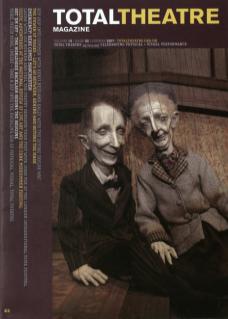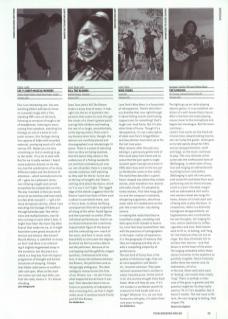The lights go up on Leslie playing electric guitar. It is an excellent rendition of a well-known blues classic. After a few bars she stops playing, moves closer to the microphone and begins her monologue. But the music continues...
Leslie's first words are the frank admission that, despite taking lessons, she can't play the guitar. Leslie goes on to talk openly about her life's various disappointments, small and large, as the music continues to play. This very intimate initial scene sets the confessional tone of (Be)longing, in which tales of loss, love and longing are delivered with touching humour and pathos. (Be)longing is spilt into two parts, with Leslie Hill and Helen Paris each performing solo for thirty minutes. Leslie is a part-Cherokee cowgirl with an embroidered shirt and a mid-western drawl who longs for home, dreams of a fresh start and of being able to play the blues. In comparison, Helen is a distinctly homegrown disappointment, an Englishwoman who is tortured by her own thoughts, her longing for love, and an addiction to coffee, cigarettes and wine. Both women want to fit in, to belong, and long for the fantasies they act out on stage. But they ultimately fail to achieve their desires and that failure is at the heart of the piece. The longing embodied within these stories transmits to the audience as painfully tangible. Desire tirelessly stalks these two women and, by implication, all of us.
In the end, Helen and Leslie want to 'belong', but mostly they simply ‘long'. Theirs is perhaps a clear case of the grass is greener and the question might be: ‘Do they really want to fit in'? It's doubtful. But it doesn't matter. The real issue is the lack, the very longing to belong, that shapes life.

